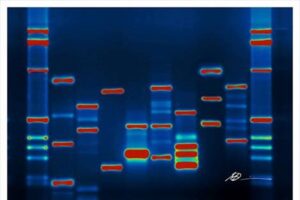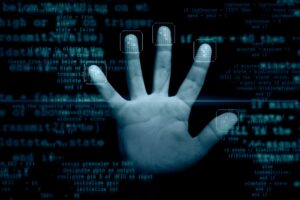 By Gerald L. Maatman, Jr. and Tyler Zmick
By Gerald L. Maatman, Jr. and Tyler Zmick
Duane Morris Takeaways: In Carroll v. General Mills, Inc., No. 23-CV-1746 (C.D. Cal. Sept. 1, 2023), Judge Dale Fischer of the U.S. District Court for the Central District of California issued a decision dismissing (for a second time) a class claim brought against General Mills under the Video Privacy Protection Act (“VPPA”). In its decision, the Court ruled that General Mills – a company that manufactures and sells cereals and other food products – did not qualify as a “video tape service provider” under the VPPA, and that even if it did, Plaintiffs’ claim would still fail because they did not show they were “consumers” covered by the statute’s privacy protections. Carroll v. General Mills is the latest decision involving the VPPA – a long dormant statute that class action plaintiffs have recently turned to in attempting to seek redress for alleged privacy violations.
Case Background
Plaintiffs Keith Carroll and Rebeka Rodriguez alleged that they watched videos on General Mills’ website and that General Mills subsequently disclosed their “video viewing behavior” to Facebook and Google. Specifically, Carroll claimed that General Mills sent Facebook the video he watched online and his identifying information in connection with General Mills’ use of a Facebook advertising feature. Similarly, Rodriguez claimed that General Mills disclosed her “video viewing behavior” and other website analytics data to Google through General Mills’ use of the Google Marketing Platform.
Based on these allegations, Plaintiffs filed a class action that alleged General Mills violated the Video Privacy Protection Act (“VPPA”) by knowingly disclosing their personally identifiable information (“PII”) to Facebook and Google. See 18 U.S.C. § 2710(b)(1).
The District Court’s Decision
The Court granted General Mills’ motion to dismiss Plaintiffs’ VPPA claim. It held that Plaintiffs failed to satisfy the first two prongs of the four-step pleading test applicable to VPPA claims.
In analyzing the allegations, the Court explained that to state a VPPA claim, a plaintiff must allege that: (1) a defendant is a “video tape service provider”; (2) the defendant disclosed PII concerning a consumer to another person; (3) the disclosure was made knowingly; and (4) the disclosure was not authorized by the “safe harbor” provision set forth in 18 U.S.C. § 2710(b)(2).
Like the claim asserted in the previous version of their complaint, the Court determined that Plaintiffs’ VPPA claim failed at step (1) because Plaintiffs did not adequately allege that General Mills is a “video tape service provider,” and that even if the Court were to proceed to step (2), Plaintiffs would also fail at that step based on their inability to show that they qualify as “consumers” under the statute.
“Video Tape Service Provider”
Regarding step (1), the VPPA defines a “video tape service provider” as “any person, engaged in the business, in or affecting interstate or foreign commerce, of rental, sale, or delivery of prerecorded video cassette tapes or similar audio visual materials.” 18 U.S.C. § 2710(a)(4). Importantly, the Court noted that the statute does not apply to every company that “delivers audio visual materials ancillary to its business” but only to companies “specifically in the business of providing audio visual materials.” See Order at 6.
Based on the allegations at hand, the Court held that Plaintiffs failed to allege that General Mills – who manufactures and sells cereals, yogurts, dog food, and other products – is “engaged in the business of delivering, selling, or renting audiovisual material.” Id. The Court rejected Plaintiffs’ attempt to satisfy step (1) by adding allegations in their amended complaint regarding General Mills posting on its website links to professionally made videos. In the Court’s words, these “allegations do no more than show that videos are part of General Mills’ marketing and brand awareness,” which does not suggest “that the videos are profitable in and of themselves” or that the videos “are the business that General Mills is engaged in.” Id. at 6-7.
“Consumer”
The Court next held that even if Plaintiffs had satisfied the first step, they nonetheless would have failed at step (2) based on their failure to allege facts establishing that they are “consumers” under the VPPA.
The VPPA defines “consumer” as “any renter, purchaser, or subscriber of goods or services from a video tape service provider.” 18 U.S.C. § 2710(a)(1). Read in the statute’s full context, courts have held that “a reasonable reader would understand the definition of ‘consumer’ to apply to a renter, purchaser or subscriber of audio-visual goods or services, and not goods or services writ large.” See Order at 7 (citation omitted). That is, the definition of “consumer” “mirrors the language used to define a ‘video tape service provider’ as one who is in the business of ‘rental, sale, or delivery’ of audiovisual material.” Id.; see also id. at 7-8 (“‘[C]onsumer’ is obviously meant to be cabined in the same way [as ‘video tape service provider’] – as a renter, purchaser, or subscriber of prerecorded video cassette tapes or similar audio visual materials.”).
The Court determined that Plaintiffs’ prior purchase of General Mills’ food – an “unrelated product” – does not make them “consumers of audiovisual material.” Id. at 8. The Court further noted that Plaintiffs’ failure at step (2) highlights “the fundamental issue” with their VPPA claim – namely, Plaintiffs struggle to plead that they are consumers of General Mills’ audiovisual material because General Mills is not in the business of offering audiovisual material to consumers. See id. at 8-9 (“If General Mills were in such a business, Plaintiffs would not be referring to purchases of General Mills’ food products to establish themselves as consumers.”).
Implications For Corporate Counsel
The decision in Carroll v. General Mills reflects the recent trend among class action plaintiffs’ lawyers of using traditional state and federal laws – including the long dormant VPPA – to seek relief for alleged privacy violations. In applying modern technologies to older laws like the VPPA (passed in 1988), courts have grappled with, among other issues, determining who qualifies as a “video tape service provider” or a “consumer” under the statute.
The Carroll decision may suggest that the definitions of “video tape service provider” and “consumer” are relatively straightforward, but other cases can present close calls (e.g., whether a social media platform that delivers various services to users, including video content, is a “video tape service provider”). Indeed, courts have recently faced challenges in interpreting the VPPA’s definitions in cases involving, inter alia, whether individuals who download a free app through which they view videos qualify as “subscribers” (and therefore “consumers”) under the statute.
Given this uncertainty, companies that provide audio visual materials in connection with their business operations should take advantage of the “safe harbor” amendment, adopted in 2013, under which “video tape service providers” may lawfully disclose PII with the informed written consent of consumers. To do so, companies should update their online consent provisions as needed to specifically address the VPPA.








